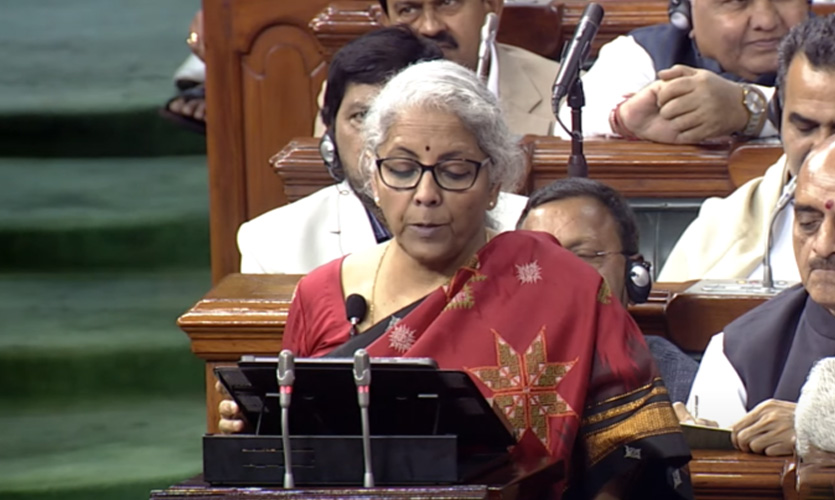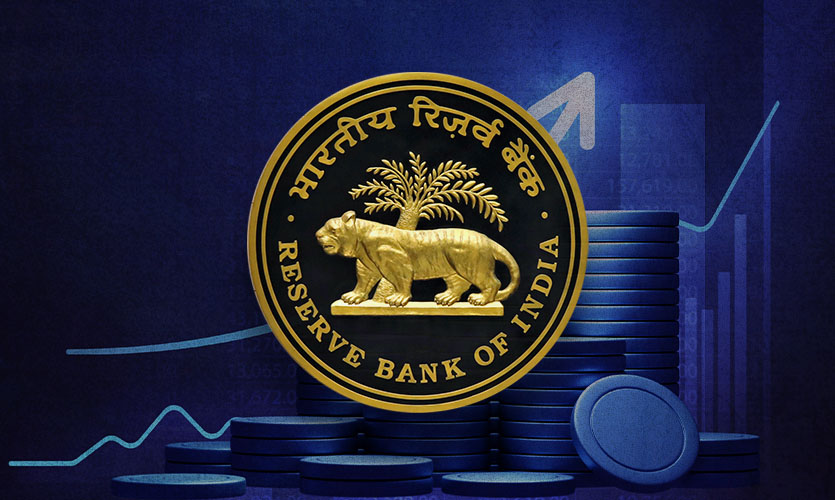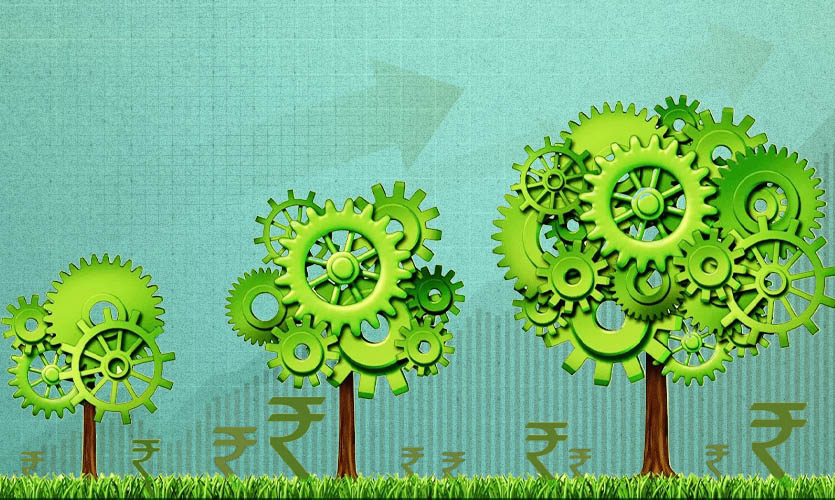Sticking to the broader growth strategy she unveiled for FY 2019-20, Finance Minister Nirmala Sitharaman revealed a two-pronged approach ensuring private sector incentives and maintenance of fiscal prudence by the government today.
Declaring the new tax regime as default, the minister announced attractive income tax rebates, steep hikes in capital investments, and the biggest ever railway outlay, as part of Union Budget 2023-24.
Sitharaman said that the Budget largely focussed on four major points: empowering women, focus on tourism, “Vishwakarma” or those toiling traditionally through their hands for the country, and green growth.
The finance minister said that the Budget supports capital investment, pays attention to MSMEs since they are the “engine of growth”, boosts the private sector, and provides tax breaks for middle-class families and people.
One of seven focuses of her budget is “green growth”. She said that these seven guiding principles serve as India’s “Saptarishi”, steering it through the ‘Amrit Kaal’, and are highly compatible. Sitharaman added that India was moving towards the “panchamrit” and net-zero carbon emission by 2070, to usher in a green industrial and economic transition.
A programme to assist state governments and municipalities in upgrading their outdated, polluting automobiles has also been unveiled. Given that the government is also focused on switching to green fuels by 2030, this is expected to boost the country’s auto sales, particularly those of electric vehicles. Companies with a line-up of electric vehicle products in all segments, like Tata Motors and Toyota Kirloskar, are likely to benefit the most from this push.
Mahila Samman Savings Certificate, a one-time new modest savings programme, will be made accessible for a two-year period up until March 2025, as a way to commemorate ‘Azadi Ka Amrit Mahotsav’. This would provide women or girls with the choice to deposit up to two lakh rupees for a two-year term at a fixed interest rate of 7.5 percent, with the possibility of partial withdrawal.
The FM announced the initiation of ‘A Mission to Eliminate Sickle Cell Anaemia’ by 2047, and the development of 157 new nursing colleges. For the 740 Eklavya Model Residential Schools that serve 3.5 lakh tribal kids, the Centre will also hire 38,800 teachers and support personnel over the course of the next three years. Innovative pedagogy, curricular change, ongoing professional development, dipstick surveys, and ICT adoption will reimagine how teachers are trained.
In a novel step, the finance minister said that imprisoned individuals who are unable to pay their fine or bail will receive appropriate financial support.
To improve regional aviation connectivity, 50 more airports, heliports, water aerodromes, and advanced landing grounds will be resurrected, highlighting efforts to improve regional connectivity. 2.40 lakh crores has been allocated as a capital budget for the railways. About nine times as much was spent in 2013-14 as in this highest-ever spend.
With a focus on urban sanitation, Sitharaman announced that all cities and towns will be able to move from manhole to machine-hole mode for 100 percent mechanical desludging of septic tanks and sewers. A stronger emphasis will be placed on scientific waste management of both dry and moist waste.
Through the challenge mode, at least 50 locations will be chosen using an integrated and creative strategy. To accomplish the goals of the “Dekho Apna Desh” project, sector-specific skills and entrepreneurial development will be integrated. Prime Minister Narendra Modi used this as a platform to urge the middle class to choose local travel over overseas travel.
Read more: Unemployment In India Rose To 8.3 Percent In December, Reports CMIE










